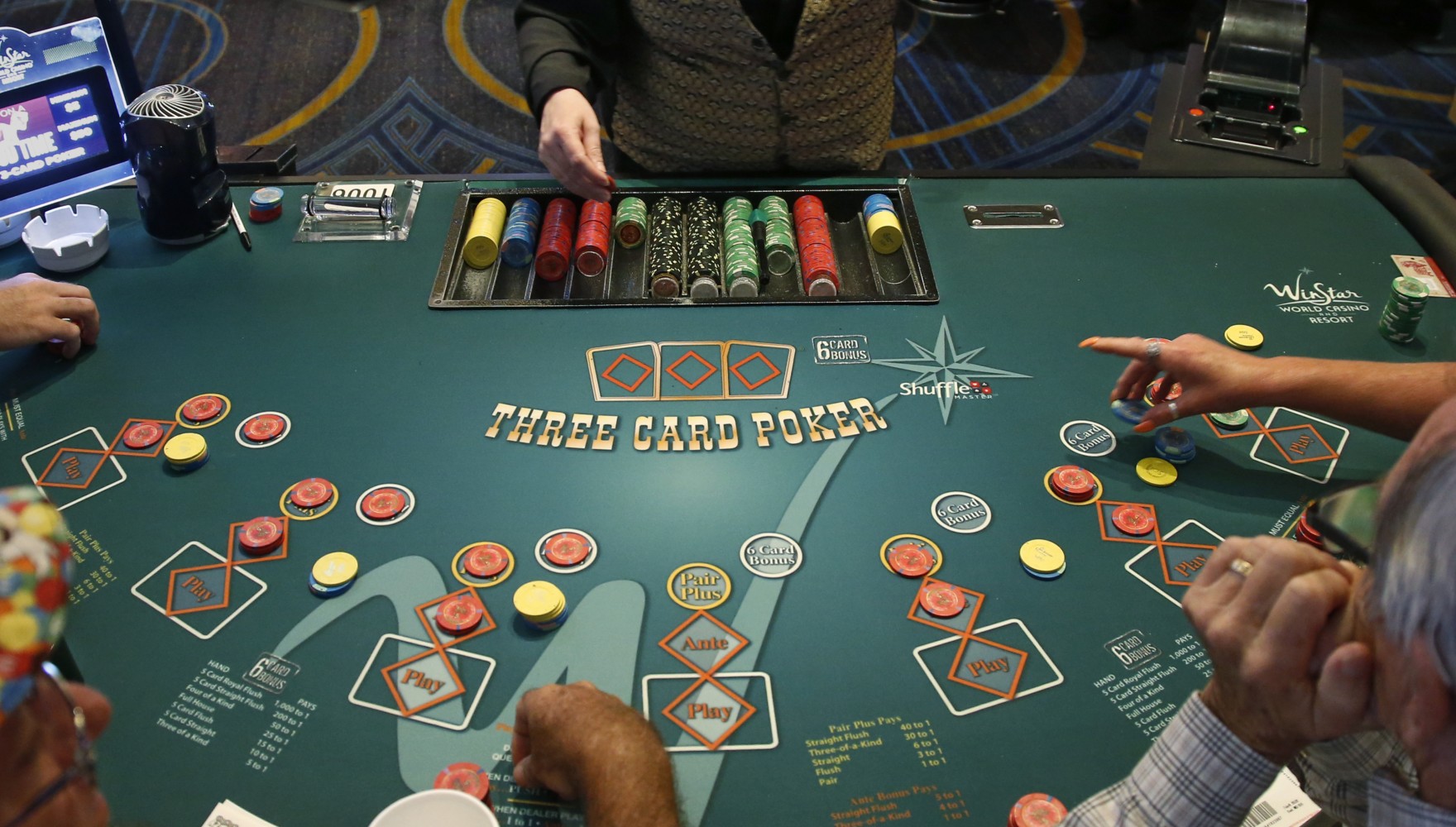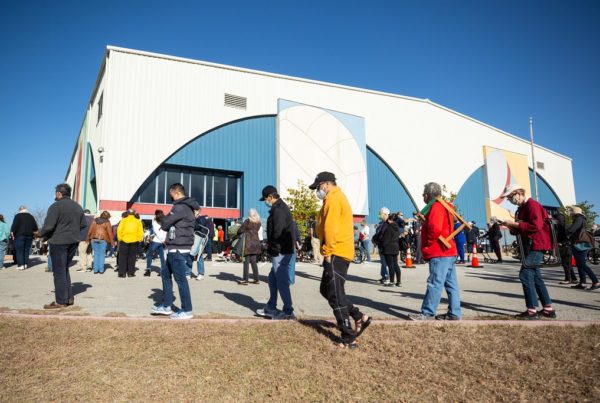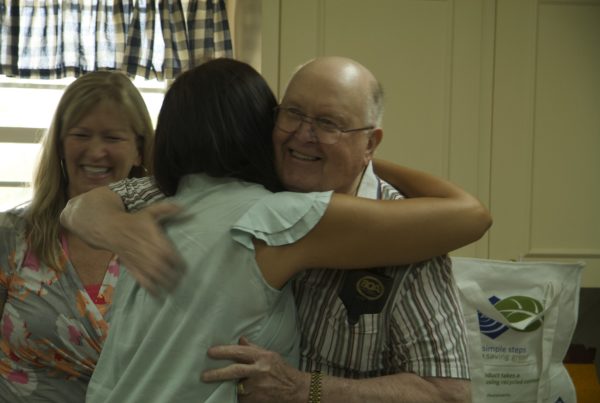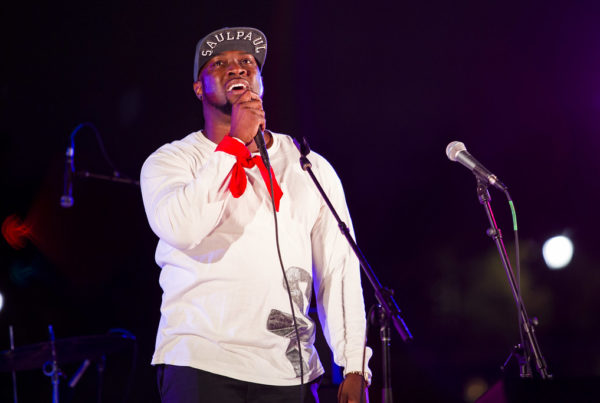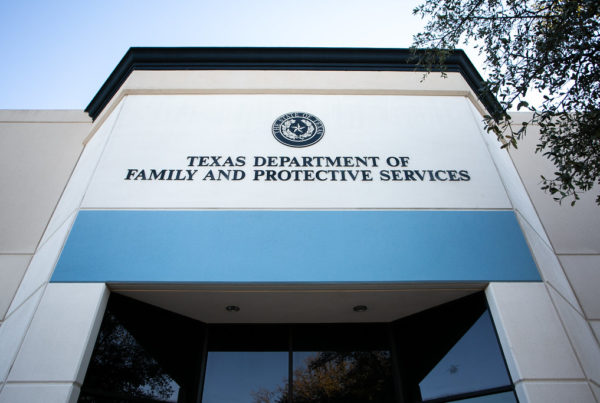State lawmakers filed proposals during this spring’s legislative session to bring casinos to Texas. Those efforts haven’t gained much traction — Texas has some of the country’s strictest gambling laws.
Still, the state has a strong connection with gambling.
It’s the birthplace of Texas Hold ‘Em. And there’s a long history of gambling and underground casino operations in Texas, along with high-profile gamblers.
Like Benny Binion.
He was a notorious gangster who ran rackets in the Dallas-Fort Worth area during the Depression era.
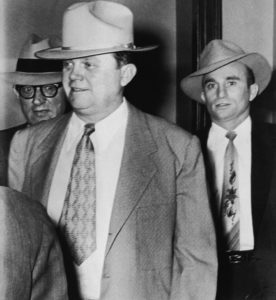
Benny Binion, former Dallas gambler, leaves a Las Vegas federal courtroom after pleading with the judge during an extradition hearing not to send him back to Texas on Nov. 14, 1952. Binion faces income tax evasion charges in Texas. (AP Photo)
“In the 1930s, Dallas was really a wide-open gambling place,” said Doug Swanson, a University of Pittsburgh professor and the author of “Blood Aces: The Wild Ride of Benny Binion, the Texas Gangster who Created Vegas Poker.” “There were casinos operated by people like Benny Binion in downtown Dallas that were an open secret. They operated with the cooperation of law enforcement.”
Swanson said much like some Prohibition-era speakeasies, underground casino operators across Texas would pay off police.
“There was a casino out in Arlington called Top O’ Hill,” Swanson said. “Down in Galveston, the Maceo family had the Balinese room out on the pier, just over the water. Everybody knew this was going on. But it was allowed to continue.”
Eventually, officials began cracking down on gambling operations and Binion was run out of Dallas. Like other mobsters at the time, he moved to Las Vegas in the 1940s, where gambling was legal. There Binion would revolutionize poker by creating the World Series of Poker tournament.
During recent Texas legislative sessions, there has been a push toward expanding gambling and bringing casinos to the state.
It’s part of a national trend, according to gaming historian David Schwartz, who’s also a professor at the University of Nevada, Las Vegas.
Across the U.S., there’s been a big expansion of sports gambling and online gambling as states recognize there are profits to gain, he said.
“As you see more and more states take this up, I think the ones that haven’t are looking to cover those revenues, and saying why should people in Texas go and gamble in Oklahoma or Louisiana, instead of doing it in Texas?” Schwartz said.
States like Texas also already have a lottery, which presents a point of entry for some people.
“They’re already, in many ways, in the gambling business,” Schwartz said. “So, morally, many people find it difficult to make a distinction between: Well, it’s OK to buy lottery tickets, but it’s not OK to bet on the Cowboys.”
But for people who are against gambling or casinos, there are valid reasons why they’re reluctant, Schwartz said.
“Negative consequences, which could include addiction, which could include opportunity costs — if people are spending money on gambling, they’re not spending money on something else,” he said. “Those are a lot harder to track.”
There are groups who’ve largely stood against expansion, including many Republican lawmakers in Texas. Lt. Gov. Dan Patrick said he believes that position will hold.
In February, he talked with the Chad Hasty Show on KFYO, a radio station in Lubbock.
“We have hundreds and thousands of bills filed, most will never see the light of day, so I don’t spend much time on it, because the members are just against it,” Patrick said in February.
That kind of staunch opposition has affected groups who’ve tried to run their operations in the state, including some Native American tribes in Texas.
The Indian Gaming and Regulatory Act is a federal law that allows tribes to run operations on their own land, but they can only offer the kinds of gambling permitted in the state where they reside.
Unlike commercial casinos, tribal gaming operations are owned by the tribes and their members, said Dustin Thomas, chief of staff for the National Indian Gaming Commission.
“This means that the tribe must use gaming revenue to improve its infrastructures, develop educational opportunities and programs, other social services and social programs for their members,” he said.
The Kickapoo Traditional Tribe of Texas runs the Lucky Eagle Casino Hotel in Eagle Pass, the only operation in the state run by a Native tribe under the Indian Gaming Act.
Thomas said gaming has become important to the economies of many Native American tribes and helps support their self-governance and self-sufficiency.
“I have had the opportunity to travel throughout the country, including my own tribes, and just see firsthand what gaming has done for Indian country, and the local communities in terms of job development,” Thomas said.
That’s why Native tribes are watching what’s happening in Austin with proposed casino legislation, just as closely as the corporations who’re standing by ready to expand gaming in Texas.
Got a tip? Email Galilee Abdullah at Gabdullah@KERA.org.


